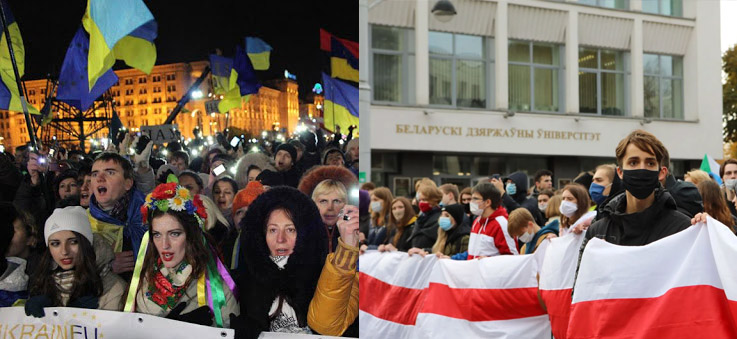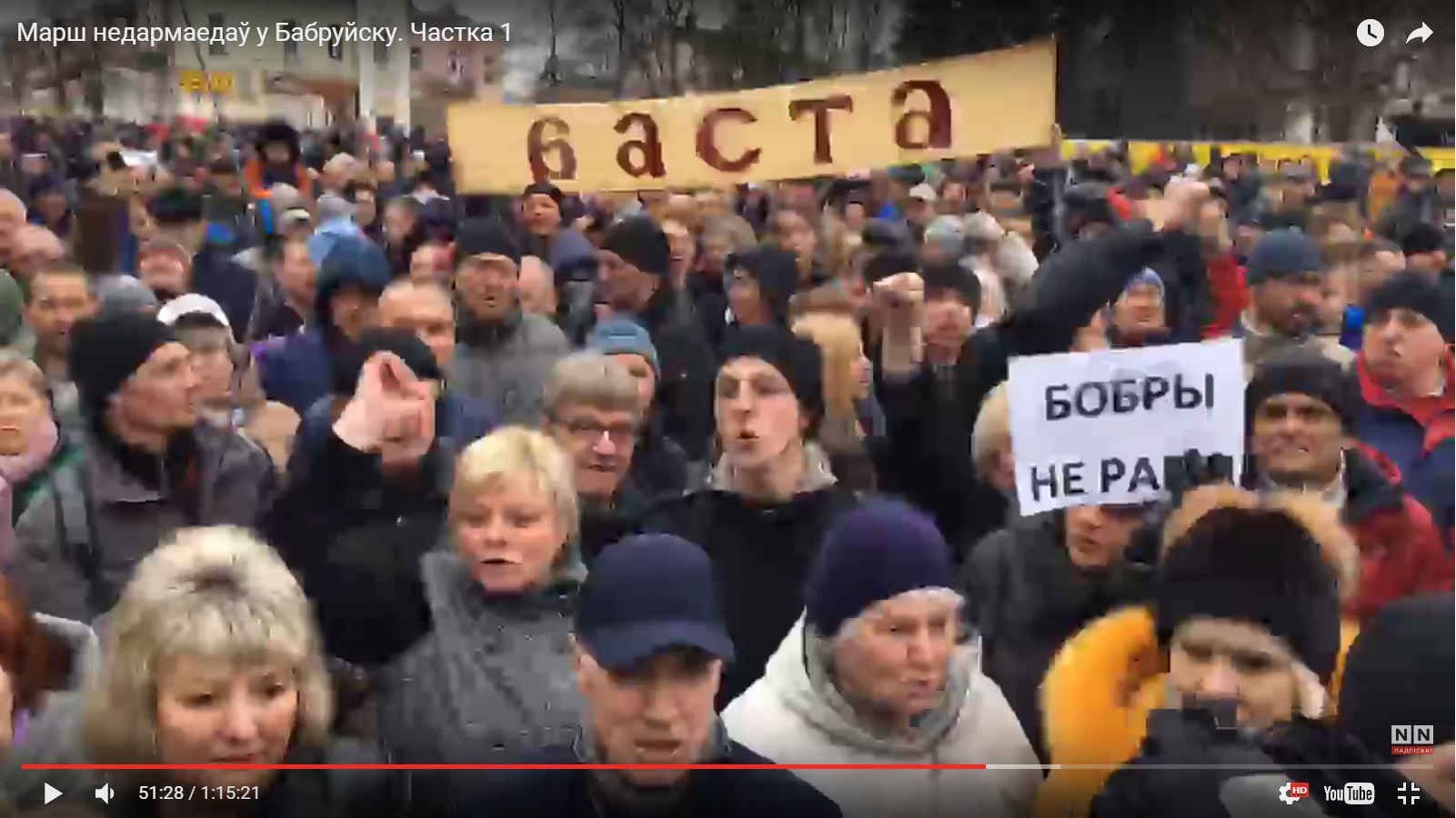In Belarus, protests against widespread election fraud are into their fifth month. Peaceful protesters have shown remarkable resilience in the face of police brutality. In the last month, the protests have taken a turn for the worse: the siloviki, or law enforcers propping up the regime of dictator Alyaksandr Lukashenka, have renewed the crackdown on Belarusians who had enough of election-rigging. Lukashenka’s rule depends on the loyalty of his siloviki, who are brainwashed into supporting the regime, according to a confession of one of them that escaped to Ukraine amid the ongoing protests.
It now turns out that some of Lukashenka’s siloviki were formerly the siloviki of ex-President Viktor Yanukovych, who was in a similar situation in 2013-2014. Then, three months of protests sent him fleeing to Russia. Some of his entourage followed suit, as did some members of the Berkut riot police. Before the Euromaidan protests won, dozens of protesters were shot with live ammunition in central Kyiv.
Some Berkut police officers were suspected in these mass killings of protesters in the winter of 2013-2014. like members of the Black Company, and escaped to Russia.
[boxright][/boxright]Ukrainian Berkut police suspected of Euromaidan massacre now in Russia’s service?
Berkut chief Sergey Kusyuk, who is suspected of handing out rifles with live ammunition to his subordinates during the Euromaidan protests and then ordering to destroy them, even found himself a new job: he was spotted dispersing anti-Putin protesters in Moscow in 2017.
This is the second wave of the investigation; Mr. Ivashin published the first one after the widespread protests against the “Vagrants” law in 2017.
According to Mr. Ivashin, after the victory of the Euromaidan revolution, Berkut members fled with their families to Belarus, where they received asylum and work in the Minsk riot police.
He managed to identify at least four former Ukrainian security officers in the ranks of the Belarusian riot police: Serhiy Panasenko, Serhiy Havryliak, Anatoliy Primak, and Dmytro Antsupov. Antsupov is said to hold the position of inspector of the riot police special training department in Minsk, according to the telegram channel of the “Cyber partisans,” a coalition of Belarusian IT specialists helping the protests.
[boxright][/boxright]Policeman who fled Belarus: Lukashenka’s siloviki brainwashed into supporting the regime
All the four come from Mykolayiv, a city in southern Ukraine. The Mykolayiv Berkut had a reputation as one of the toughest special forces units. Companies of this unit guarded administrative buildings of the state authorities in Kyiv and the residence of Ukrainian ex-President Viktor Yanukovych’s during mass protests in 2013-2014. Before that, their tasks included dispersing football fans and forceful assistance in falsifying local elections in Mykolayiv. After the Euromaidan Revolution, they fled in “groups of friends,” according to Ukrainian MP Vadym Merikov.
Although the identified four police officers are not accused in the mass shooting of Euromaidan protesters, there may be others hiding in Belarus who are. In 2016, a representative of the Ukrainian Security Service suggested exactly that; according to Anatoliy Dublik, at that time, one ex-Berkut officer escaped to Belarus, two — to Poland, five were in Russian-occupied Crimea, seven — in the Russian puppet “republics” in eastern Ukraine, and the rest — in Russia. To date, 21 employees were declared wanted by Ukraine for their role in the mass shooting of protesters in February 2014.
Why did the former Berkut officers flee to Belarus? Dzianis Ivashin offers the following explanation:
“The Lukashenko regime is on a par with the aggressor state of the Russian Federation, for which democratic transformations in Ukraine and Belarus are a real threat. It is for the sake of neutralizing this threat that Russia has attracted most of the Berkut fugitive fighters to its repressive apparatus.”
Tetiana Kozachenko, who headed the Public Lustration Committee of the Ministry of Justice from 2014 to 2016, has another version: former employees of Ukrainian special units are hiding in other countries because they know what really happened on Independence Square in early 2014:
Read also:
- Ex-Berkut chief suspected of organizing Euromaidan massacre now dispersing protests in Moscow
- Ukrainian Berkut police suspected of Euromaidan massacre now in Russia’s service?
- Policeman who fled Belarus: Lukashenka’s siloviki brainwashed into supporting the regime
- Confessions of an ex-riot policeman from Belarus








